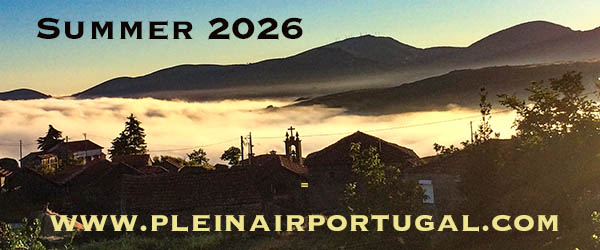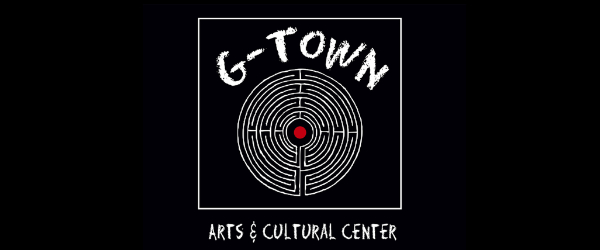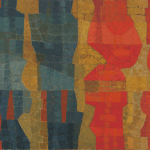Contributed by Jonathan Stevenson/ Among the syndromes that make the current American moment so vexing is a liberal contingent duly alarmed but bereft and flummoxed in the face of unprecedentedly heedless and unrestrained illiberal forces. Concerned citizens – including elected officials – don’t know what to do, and they are clamoring for a sensibly energized way forward. Movies can reflect the zeitgeist quite resonantly and animate civic discourse. Lately, though, they have tended to divert to smaller-bore social issues and wistfulness for Americana or the counterculture without confronting what could happen to the country overall, Alex Garland’s Civil War excepted. Last week, however, Paul Thomas Anderson’s One Battle After Another landed. It is a fully sussed cri de coeur of liberal conscience, resistance, and resilience inspired by Thomas Pynchon’s novel Vineland, and the first great political movie of the Trump era.
Screens
Cinema 2024: A tight dozen
Contributed by Jonathan Stevenson / For better or worse, directly or inferentially, movies reflect the zeitgeist. This year, they predominantly resonated dread or resignation, and even those focused on personal endeavor had a political tinge. With humanity’s and especially America’s scabrous underbelly fully exposed, both idealism and irony seem to be taking a break, leaving something in between that doesn’t quite amount to earnestness. It’s not the nineties or even the seventies, though the occasional and fleeting nostalgic nod to better days lightened things up. Here’s one (alphabetical) list of the year’s notable movies, with the usual acknowledgement of idiosyncrasy and incompleteness.
Certain women, 2024
Contributed by Jonathan Stevenson / Eight years ago, Kelly Reichardt’s exquisitely penetrating Certain Women appeared. A singularly nuanced and resolutely independent filmmaker, she patrols the interstices of American history and contemporary society. In this movie, she presented several game female Montanans who couldn’t afford to have feminism on their minds and nonetheless lived reckonable lives – a perspective that she had established sharply in Wendy and Lucy (2008) and reiterated softly in Showing Up (2022). Judging by several recent independent films, Reichardt’s subtle perspective has had lasting influence in framing the quandary of how women establish agency in a society that still – or at least again – often militates against them.
Sama in the Forest: Indian women’s powerful storytelling
Contributed by Kathryn Myers / As an artist and longtime collector and curator of India’s unique and dazzling Mithila art form, I was deeply moved by an inspired new film, Sama in the Forest, which enlivens and re-contextualizes an ancient folktale while offering a privileged glimpse into the process of creation in Mithila art. Distinguished by its exquisite network of complex lines rendered in ink with shapes of brilliant color, Mithila is…
Mark Fingerhut and the sneaky internet
Contributed by Jonathan Stevenson / Burgeoning technological innovation over generations has brought out the millennial optimist in many, but, especially outside the bubble of the tendentious capitalists eager to cash in on their investments, it may have unloosed the Luddite paranoiac in more. “Goings On,” a pastiche of Mark Fingerhut’s cheerfully invasive videos deftly curated by Lonesome Dove and recently screened at Springs Projects in Dumbo, speaks to both – the one in knowing condescension, the other in sardonic affirmation. Blasts of images that rankle sometimes owing to their content, sometimes because of their staccato presentation and creepily fluid mutability, make a case for the digital matrix’s weird agency and, beyond that, its insidious seductiveness.
Fists or knives? Jeff Nichols and the irrepressible biker myth
Contributed by Jonathan Stevenson / To add up, any contemporary movie about a motorcycle club needs to be deconstructive as well as elegiac. Jeff Nichols […]
Movies of 2023: Barbenheimer and beyond
Contributed by Jonathan Stevenson / Last summer’s Barbenheimer phenomenon – the ballyhooed simultaneous release of Oppenheimer and Barbie, two expensive and well-acted films with sophisticated political messages rendered by leading auteurs – afforded 2023 the façade of audacity. But they came out during the writers’ strike, which signaled, if somewhat below the radar trained on the films, the uneasy and uncertain relationship between streaming and Hollywood.
The Zone of Interest and Eileen: Varieties of creepiness
Contributed by Jonathan Stevenson / Some might have thought that the cultural well had run dry on the Holocaust – that writers, filmmakers, and playwrights had said all they could about Hitler’s Germany, having plumbed it so exhaustively as to entrench an existential deterrent to its reprise. But that view assumed that the species was advancing. In the last ten years or so, the late-twentieth-century idea of human progress has taken an obvious hit. The political success of Donald Trump, the MAGA crowd, and their imitators has reanimated the fear of vicious fascism and the warped ethos that allows it to flourish. So Jonathan Glazer’s The Zone of Interest, loosely based on Martin Amis’s novel of the same title, is not just a brilliantly imagined dramatization of genocidal lunacy compartmentalized within the saccharine Gemütlichkeit that the Nazis idealized and retailed. It is also a cold-eyed warning about the persistent human capacity for morbid normalization.
Afire: Christian Petzold’s combustible feast
Contributed by Jonathan Stevenson / Instability hovers on several fronts – environmental, political, economic – and German filmmaker Christian Petzold manifests his concern about it with remarkable astuteness. For the haunting Transit (2018), he filmed characters with new-fangled accessories in black-and-white as they sought escape from a port in a nameless fascist state, seamlessly casting the shadow of Second World War trauma over the present day. In his new film Afire, which won the Silver Bear Grand Jury Prize at the Berlin Film Festival, he zeroes in on narcissism in a time that demands community.
Arthouse Art House
Contributed by Jonathan Stevenson / The set-up of Vasilis Katsoupis’ slickly but somewhat facilely resonant feature debut Inside is deceptively simple. A high-end art thief is helicoptered onto the roof of a luxury Manhattan high-rise and, with the aid of a techie accomplice, hacks into the security system of an absurdly opulent penthouse, owned by a high-end art collector who is evidently away for a season or two. The thief is targeting several of Egon Schiele’s signature vampy drawings and a singularly valuable self-portrait.
Art and Film: Nora Griffin, Wes Anderson, and nostalgia’s virtues and limits
Contributed by Jonathan Stevenson / In 2000, The Onion published a durably wise wise-ass book called Our Dumb Century, chronicling with heavy satirical spin the endless follies of the twentieth one. Maybe a sense of relief lifted the editors. They could be forgiven for surmising, mistakenly, that centuries couldn’t get any stupider. That was the year before 9/11, when the world looked improbably rosy. It remains a moment that many look back on with special fondness. But there is dumb nostalgia and there is smart nostalgia. In “1999 NYC Tees,” a bracing four-day exhibition at Fierman on the Lower East Side, painter Nora Griffin zones in on this period and shows that the smart kind lives on the border “between kitsch and pathos.”
Triangulating David Hammons: The Melt Goes On Forever
Contributed by Jonathan Stevenson / Getting an authoritative grip on a conceptual artist as elusive and unsusceptible to classification as David Hammons is no mean feat. He has been a willful outsider, defensively attuned to an art world that has, until recently, systematically excluded Blacks and others of color, and remains determined to disrupt and, in some ways, to frustrate the art establishment as he cajoles it into changing. Yet in their deft and moving documentary The Melt Goes on Forever: The Art and Times of David Hammons, which had its American theatrical debut at the Film Forum on May 5, Harold Crooks and Judd Tully essay Hammons’ iconoclastic critique with admirable clarity and due appreciation, plumbing the art, finding the man, and situating him firmly in art history without ever succumbing to hagiography or expository dullness.
Art and Film: Kelly Reichardt’s commune of angst
Contributed by Jonathan Stevenson / Kelly Reichardt excels like no other filmmaker at conveying the subtle ravages of time on earth. She brilliantly tackled the epic theme of America’s western expansion in the revisionist westerns Meek’s Cutoff and First Cow and eco-terrorism in Night Moves. But it is the day-to-day yield and subtext of history and politics that most concern her: a young housewife facing down ennui in River of Grass; a friendship deteriorating with age in Old Joy; a young woman seeking a better life unprepared in Wendy and Lucy; women extracting meaning from desolation in the post-feminist Certain Women. For Reichardt, even subdued lives are fully lived and merit sympathetic attention. They include, she insists in Showing Up, the quietly precarious existences of artists. Wise, nuanced, and penetrating, the film is also stealthily hilarious.
Art and Film: The 2022 notables
Contributed by Jonathan Stevenson / This is a little late, but just in time for the Oscars. Filmmaking in the time of Covid is looking healthy, so no epochal disquisition is needed – just the usual caveat that these picks are inevitably subjective and, in some cases, perhaps eccentric.
When Irish eyes aren’t smiling
Contributed by Jonathan Stevenson / Martin McDonagh’s The Banshees of Inisherin is darkly comic — invariably mordant and occasionally hilarious. But the situational modesty and outward sardonicism are subterfuge. This is a stealthily grand film with weighty political and existential themes, framing McDonagh as contemporary cinema’s wisest bad-ass.







































